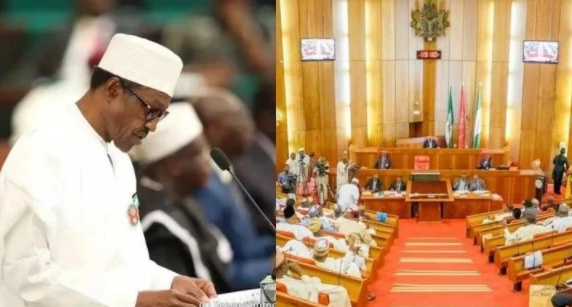The Senate on Tuesday initiated moves to probe the President Muhamadu Buhari’s Ogoni land cleanup as the legislature directed its committee on environment to investigate the implementation of the cleanup.
The exercise was launched by President Muhamadu Buhari in 2016 with an estimated cost of $1 billion.
The decision of the Senate followed a motion moved by Sen. Oluremi Tinubu, Chairman, Senate Committee on Environment to mark the World Environment Day.
The senate directed its committee to also assess the progress of the Great Green Wall programme initiated to control desertification in the country.
While moving the motion, Sen. Tinubu expressed dismay that despite the launch of the project, work has not commenced in the area.
Contributing, Sen. Magnus Abe corroborated that there was nothing on ground yet to show that the clean up was designed to actually cleanup the area.
He said that farmlands were still polluted while rivers of oil spills still abound.
Abe urged the Federal Government to review the country’s environmental regeneration programmes to take care of environmental issues in the country. Ogoni land is located in Rivers State on the coast of the Gulf of Guinea, east of the city of Port Harcourt. It extends across the Local Government Areas (LGAs) of Khana, Gokhana, Eleme and Tae.
In a 2011 assessment of over 200 locations in Ogoniland by the United Nations Environment Programme (UNEP), it was found that impacts of the 50 years of oil production in the region extended deeper than previously thought. Because of oil spills, oil flaring, and waste discharge, the alluvial soil of the Niger Delta is no longer viable for agriculture.
Furthermore, in many areas that seemed to be unaffected, groundwater was found to have high levels of hydrocarbons or were contaminated with benzene, a carcinogen, at 900 levels above WHO guidelines.
In the 2017 Democracy speech by Acting President, Prof. Yemi Osinbajo, he said that the Ogoni Land clean up was an environmental priority of the government which was why it began last year.
